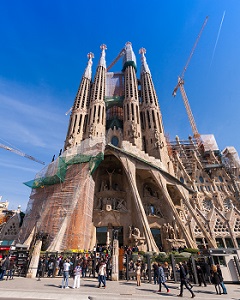Success tips when doing business in Spain in 2025
Business meetings

- Knowing few words in Spanish prior to your business meeting always creates a good impression;
- All meetings in Spain should be pre-arranged as walk-in approach towards a serious business meeting is not appreciated;
- Our Clients should start with a formal handshake, while maintaining direct eye contact with their host, followed by business card exchange;
- Hierarchy is important in Spanish business culture and all decisions are made by the senior manager present at the meeting;
- The locals enjoy meals as a social activity. Furthermore, it is not necessary to discuss business at the table.
Other useful tips
- A proper exit strategy is important in order to map out potential accomplishments in the future;
- Operating a version of your website in Spanish is an ideal way to reach many new Clients;
- Checking the English-proficiency of the counterparty is preferred as there may be a need of an interpreter.
Interesting facts about Spain?
Business and economics
- The Spanish GDP per capita is estimated at US$27,520;
- Spain produces the largest amount of renewable energy in the World;
- The unemployment rate in Spain is moderately high at 17% in 2017;
- Debt to GDP ratio is still one of the highest in the European union at 98.9% as of end 2016;
- Tourism is a vital source of income for the Spanish economy, with numbers of tourists reaching record 75 million in 2016.
Geography
- Spain is moderately flat country surrounded by rigged hills and the Pyrenees Mountains in the North;
- The country is located on most of the Iberian Peninsula;
- There is a specific type of hot wind found in Southern Spain called sirocco;
- Droughts are common in the central parts of Spain; however, the Galicia region is very green, often called “Green Spain”;
- Spain is a moderately large country in Europe with 505,988 square kilometers of land.
Society and culture
- There are several major ethnic groups in Spain, including: Castilian (75%), Catalan (16%), Galician (6.5%) and Basque (2%);
- The Government in Spain represents a Constitutional Monarchy with a King as head of state, however with limited powers;
- Following the Spanish civil war of 1936 to 1939, the country was led by a military dictator called General Francisco Bahamonde, however following the European Union in 1986, the country prides itself as a free and democratic economy;
- Spain is a 94% Roman Catholic country, however during its history, there were multiple religions present the country in high percentages of the population;
- Many regions in Spain have their own, traditional cuisine, which makes the country attractive for returning tourists interested to explore different places.

